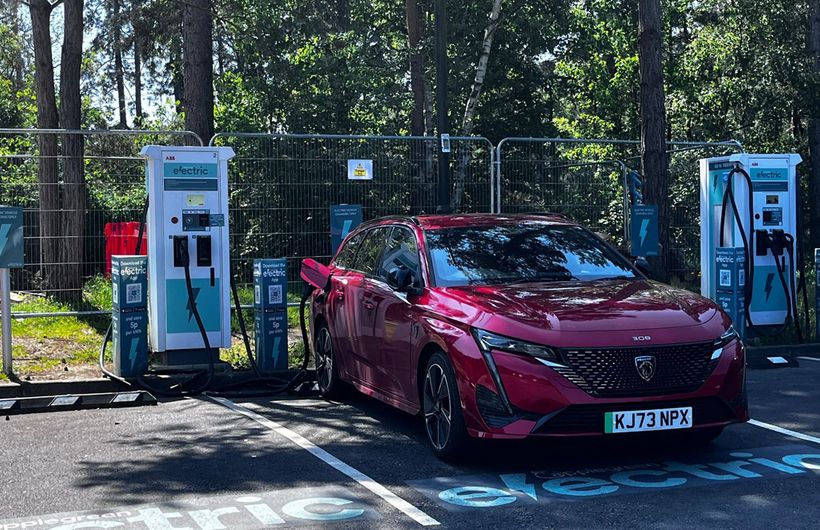With all the main party manifestos now released, drivers and car buyers now have a clearer view of what the motoring landscape will look like after the general election next month.
As expected, the Labour Party has confirmed its pledge to restore the 2030 cut-off for the ban on sales of new petrol and diesel cars. However, it made no reference to hybrid or plug-in models that were expected to get a stay of execution under the original Conservative plan. According to the party’s manifesto, reverting back to the 2030 date will give certainty to manufacturers and buyers alike. The party also renewed its pledge to accelerate the roll-out of charging points.
In relation to electric cars, Labour is also pledging to introduce a standardised set of metrics for battery condition when buyers are looking at buying a used electric car. Although the manifesto gives no detail on how this will be applied, a standardised system for recording and guaranteeing battery health has been proposed by European Council and will come into effect from 2027.
According to the party’s 2023 automotive sector plan, Labour is pledging to accelerate domestic battery making capacity, invest £1.5 billion in gigafactories, and streamline the planning process for new factories. The party estimates that its strategy could create 80,000 skilled jobs in the automotive sector.
Should it win the election, Labour is also seeking to reduce energy costs for industry and improve grid capacity. In a plan to ‘rewire Britain’, the party says it will work with industry to upgrade the current power network.
Commenting on the Labour Party manifesto pledges, Ginny Buckley, founder and CEO of electrifying.com said: “Today’s manifesto pledge by Labour to reinstate the 2030 deadline for the ban of sales of new petrol and diesel cars brings clarity to car buyers and car makers alike about the direction of travel. Equally welcome is the promise to standardise the information on the condition of EV batteries as we know their longevity is a key concern for car buyers.
“In a recent Electrifying.com survey of over 11,000 drivers, fewer than 1 in 10 told us they had the confidence to buy a used EV, with two thirds citing uncertainty around the life of the battery as the main reason.
“This clearly needs to be addressed to give consumers the confidence to make the switch to a more affordable used electric car, helping to ensure that nobody is left behind in the EV transition.”
What are the other parties promising?
The Conservative Party is planning to stick to its 2035 deadline for the phase out of internal combustion engined new cars and has pledged to instigate a ‘Plan for Drivers’ should it remain in power after the election.
Although the party’s manifesto gives no specific promises concerning electric cars or drivers who own electric cars, there are a number of pledges that are aimed at improving the UK’s road network. This includes a £8.3 billion fund to fill potholes and fines for overrunning roadworks. The party is also promising to “protect UK automotive industry from Chinese competition” in order to protect UK production. However, no details on what form this may take have been announced.
The Liberal Democrats will also restore the 2030 ban date for the sale of new petrol diesel cars and will introduce a number of EV-targeted schemes should it win power at the general election. According to the party’s manifesto, the Liberal Democrats will provide more charging points and cut VAT on charging costs – a move the charging industry has been calling for in recent years.
More controversially, the Liberal Democrats are also proposing a ban on imports from certain areas of China. According to the manifesto, cars and components sourced from areas of the country with “with egregious abuses, such as Xinjiang” will be subject to the ban.
Q&A. How do the political parties stand on motoring and how will it affect me?
Will electric cars get cheaper?
It’s unlikely that any government intervention will bring the cost of existing cars down. Indeed, should the Conservatives or the Liberal Democrats follow up on their promise to restrict or place tariffs on Chinese imports, prices could go up. However, the car industry is focusing on bringing more affordable electric cars to the market and adjusting the pricing of existing models in order to keep sales going.
Will charging costs come down?
The Liberal Democrats are the only party to make any specific reference to charging costs and will cut VAT on public charging. At present, public charging attracts 20% VAT whereas domestic charging has a 5% levy. The UK’s charge point operators have been calling for a change in rules for some time that would help reduce rapid charging costs.
Will the charging infrastructure improve?
All three main parties are promising to deliver an improvement in the UK’s electricity network, both for industry and the public. The Labour Party is promising to ‘rewire Britain’ but does not provide any figures or targets for an improved network. It does, however pledge to reduce red tape and cut the waiting times for new grid connections.
Will the country move to a pay-per-mile taxation system?
None of the main political parties have announced plans to switch to road pricing for UK drivers. However, all three are facing a significant drop in revenue from Road Fund Licence (road tax) as buyers switch to electric and low-emission cars. Given how potentially complicated and expensive a road-pricing system would be, a decision on this isn’t likely to come any time soon.
Will company car tax change?
Any tax changes would be part of a budget and there are no indications as yet that major changes to the benefit in kind system are imminent. However, once elected, parties have the power to change taxation rates as they see fit.
Which party promises the most to electric car buyers?
If you’re looking for cold, hard facts, only the Liberal Democrats have a specific policy that would directly benefit electric car drivers. It plans to cut VAT on public charging costs, which would mean drivers who rely on the public network would see their running costs fall.
 Only the Liberal Democrats are proposing a cut in VAT to help drivers who rely on public charging
Only the Liberal Democrats are proposing a cut in VAT to help drivers who rely on public charging 











